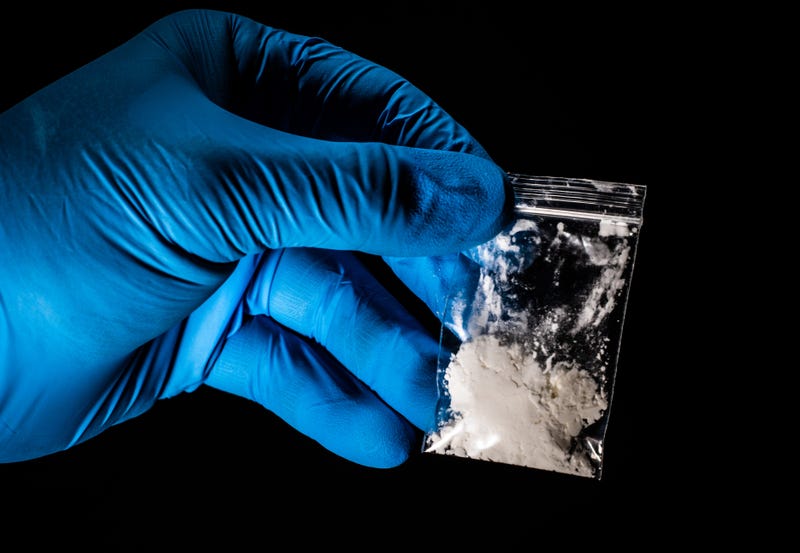
Buffalo, N.Y. (WBEN) - The opioid crisis continues to be a major concern not just in Western New York, but across the entire United States.
In Erie County alone, the number of opioid-related deaths is already at a record pace with 245 individuals having died of opioid overdoses as of the start of August. That's according to the latest update from the Erie County Opioid Task Force.
Jen Cervi, Clinical Director of Integrated Services for Horizon Health Services is also noticing the dangers with the current status of the opioid crisis in Western New York.
"Certainly the opiate epidemic is not slowing down, and we see the increasing risk of overdose for individuals in the community. It remains high," said Cervi during a recent interview with WBEN.
LISTEN LIVE TO WBEN:
While the focus for many healthcare services like Horizon is still on helping people dealing with addiction as a result to prescription medication, there is now the added focus of dealing with users of other drugs like cocaine overdosing from the unknown presence of fentanyl in their drugs.
"I think it's pretty common that we're seeing people who do use opioids are polysubstance users, meaning they often use other drugs in addition to opioids - cocaine, benzodiazepines, methamphetamines," Cervi said. "Even for people that do not use opioids, we're seeing fentanyl laced in a lot of the drug supply. In cocaine, in methamphetamine, in pressed or counterfeit pills - people think they're buying a prescription medication on the street, maybe they think it's a benzodiazepine, and that's a counterfeit pill and actually has fentanyl in it, unknowing to them."
So how have healthcare services like Horizon changed their approach to helping people, given the current status of the opioid crisis? Cervi says it's about taking a harm reduction approach, knowing some people will continue their substance use.
"I think there's maybe a misperception out there people need to be ready to stop using all substances in order to access outpatient treatment, and that just isn't true. We're here for people to help them through their stages of change," she said.
"We have fentanyl test strips that are available to people free of charge. When people use a fentanyl test strips, they can test a portion of the substance they're about to use to know if that has the presence of fentanyl in it or not. Hopefully, that will help people to use more safely and decrease their risk of overdose. We also have Narcan kits available also free of charge to anyone looking for them in our services. We know that having that opioid overdose reversal tool is extremely helpful to help save lives."
Where the challenges lie for healthcare services is knowing which drugs out there right now are more risky for people to use than they ever have been before, especially given the dangers of fentanyl.
"The potency of fentanyl is so much stronger than people realize. Fentanyl is up to 50 times stronger than heroin, and up to 100 times stronger than morphine," Cervi explained. "When you consider people using substances that have fentanyl in them, knowingly or unknowingly, then you add on to that mixing multiple substances at once, I think people's risk for accidental overdose is high as it's ever been. That's a challenge for sure, because we're trying to help people to enter into treatment, to know that we're here to help them. It's a place of non-judgment, and we want people to know that we're here."
Despite some of the changes services like Horizon are making to continue the fight against the opioid crisis, there is still a need across the nation to help more people get treatment for an opioid use disorder.
According to a recent study by researchers at the National Institute on Drug Abuse and the National Center for Injury Prevention, evidence-based treatments for substance use remained significantly underutilized in the U.S., with only about a third of adults with an opioid use disorder receiving any type of treatment for substance use. In addition, only about 1-in-5 receiving medication to treat opioid use disorder.
Cervi feels a good place to start with changing the tide and reversing these trends is to properly inform people of the resources and services that are available to combat their disorders.
At Horizon, we provide substance use treatment at several different levels of care," Cervi said. "We have our regular outpatient services. We have intensified outpatient services, which consists of more sessions per-week to support people. We have residential detox and stabilization. We also have residential rehabilitation, which is a longer day. All individuals at any of those levels of care have access to medication-assisted treatment to help them with their recovery goals."
If you or someone you know may need further assistance combating an opioid use disorder, you can contact Horizon's Patient Engagement Center at (716)-831-1800, or visit their website at horizon-health.org.
Hear our entire conversation with Cervi available in the player below:

